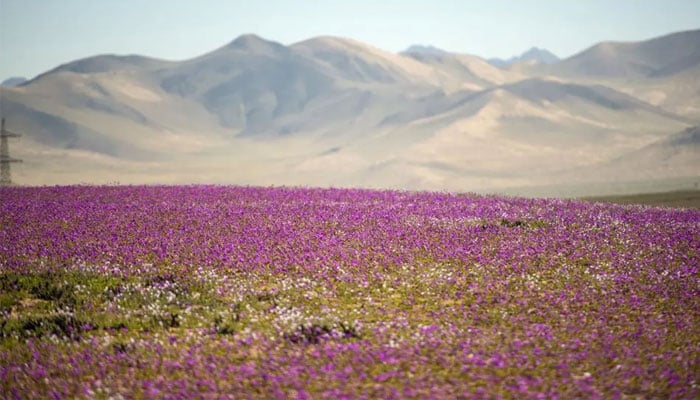
Chile’s Atacama desert, mostly known as one of the dried places on Earth, has experienced its first winter bloom in a decade, revealing white and violet hues.
Researchers suggest that this inadvertent event may be attributed to climate change, affecting a portion of Earth’s driest desert.
The Atacama desert experiences rare and spectacular “flowering desert” event during heavy winter rainfall.
This year’s rare bloom of plants in the desert is believed to be due to the rains in North Chile during the Southern Hemisphere’s fall.
In mid-April, about 0.4 inches (11 millimeters) of rain and morning fog stimulated vegetation that can stay dormant for up to 15 years.
The landscape featured bright fuchsia-coloured “pata de guanaco” flowers and white “sighs of the field”, with flowering occurring in major areas between 115 and 155 square miles, confirmed by César Pizarro, head of the Biodiversity Conservation section and Scientific Research at the National Forestry Corporation (Conaf) in Atacama.
According to report by Interesting Engineering, a full flowering desert, which mostly happens from September to October, can stretch up to 5,800 square miles, where around 200 species of flowers bloom.
Most flowers bloom in spring, typicallky between June and August, mainly due to the El Nino effect — one that causes an increase in precipitation in Chile above average.
Climate change can cause rare events like the blooming of the flowers to occur frequently which could also mean that annual plants mostly don’t reproduce.



